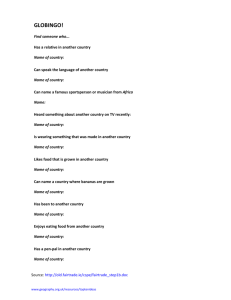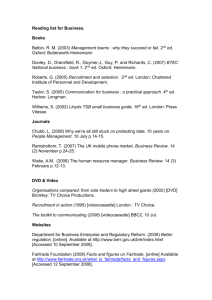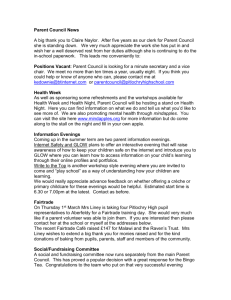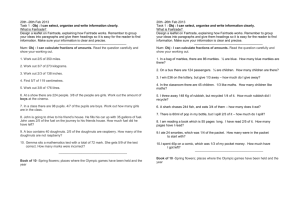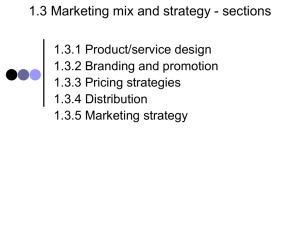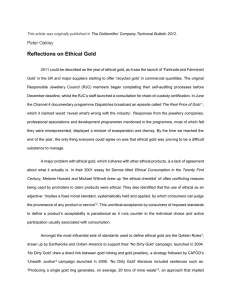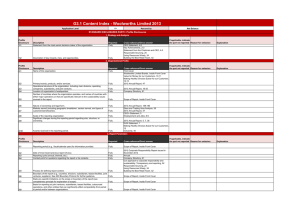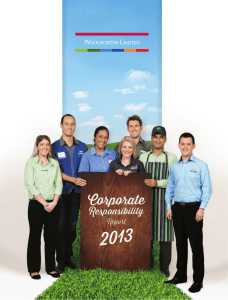Andrew Hall - PMA A-NZ
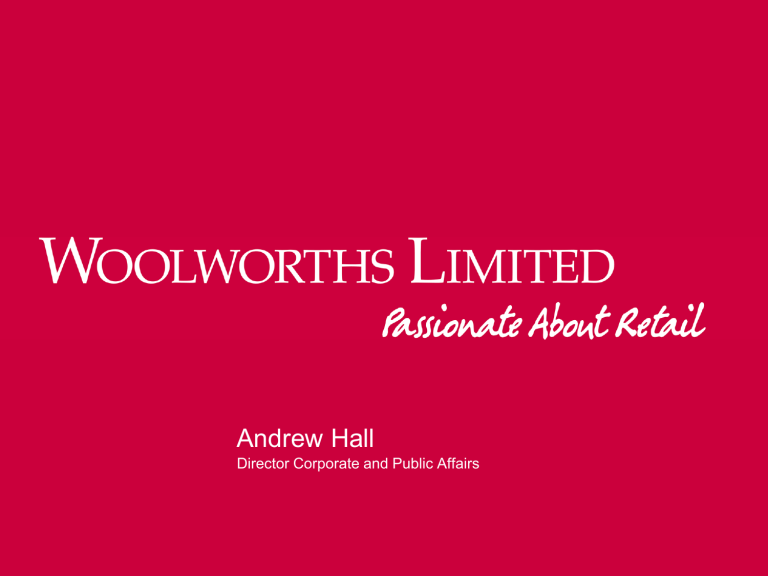
Andrew Hall
Director Corporate and Public Affairs
2
Agent of the customer
• Retailers are not the end of the supply chain – the consumer is
• Consumers view us as their agent – the apple they buy from us is a Woolworths apple – our responsibility
• Consumers expect us to do the right thing – to safeguard their health and safety, uphold quality and increasingly, buy ethically
• We need to work with suppliers who understand consumer pressures and share our values
• Our food supply chain is built on trust – our biggest asset
3
Complex and competing issues
State of origin
Palm Oil
Quality
Diversity
Deforestation Traffic light labelling
Waste
Food miles
GM Obesity
Sodium
Convenience Marine Stewardship
Animal Welfare
Country of origin
Local sourcing
Pesticides
Carbon labelling
Fair trade Value
Low GI
Organic
Corruption
Recycling
Water
Labour rights
4
UK consumer attitudes to green shopping
"Crusaders"
11
If it's easy
27
Not interested
24
What difference can I make?
38
Source: M&S survey of 25,000 consumers, 2007
Consumer Segments
5
Source: 2009 GMA/Deloitte Green Shopper Study
Co-Operative Retail Group in UK
Ethical Priorities of UK Consumers
Other
14%
Climate Change
4%
Fairtrade
27%
Packaging
8%
Environment
22%
Animal Welfare
25%
6
Source: Co-Operative Group research published in The Retail Bulletin, 7 February 2008
Consumer trends - Fairtrade
• 2009 sales of Fairtrade Certified products up 50% in Australia.
• AU$36 million in 2009, compared to AU$23 million in 2008.
• Fairtrade Certified coffee the most purchased product -70% of total retail sales.
• Fairtrade tea sales grew by 270% in 2008 and a further 100% in 2009 to
AU$6 million in retail sales
7 Source – Fairtrade Australia.
Consumer Trend Indicators - 2009
Product Percentage Increase in sales*
Percentage of total category sales in 2009
Free range chicken 33.6% 6.4%
Free range eggs 32.0% 31.7%
8
*Percentage increases based on increased sales from 2008 – Woolworths supermarkets.
Source – Woolworths Supermarkets sales data 2008 and 2009.
9
Case study - animal welfare
• Animal activist raid on piggery in Tasmania
• Appalling welfare conditions in sow stalls
• Industry’s own auditing processes failed
• Woolworths worked with not against the farmer to rectify
• 60 Minutes story
• More than 3,000 emails and letters received to date
• Breakdown of trust right along the supply chain
-consumer to retailer
-retailer to supplier
-industry to industry body
Ethical sourcing
10
• Assessment of labour practices – freedom of association, fair pay and conditions
• Focused on international vendors in higher risk countries
• Part of terms of trade for everyone
• Recognise inherent bureaucracy for suppliers
• BUT – need to reduce burden without compromising consumer commitment
11
Global approach to harmonisation
• Global Social Compliance Program (GSCP) - part of the Consumer
Goods Forum
• Top 30 leading retailers in the world
• Vision to harmonise existing efforts in order to deliver a shared, global and sustainable approach for the global supply chain
• Commitment to equivalency and reduction in complexity
• Huge task – beyond competitive difference
• Open source for ethical audits
• Increase auditing competency
12
Local ethical sourcing – policy
• One principle fits all – international and local
• Australia has a strong regulatory framework - but problems can and do occur
• We need to have a system of preparedness
• Positive health test for any business
• 70 trial audits completed with meat and poultry vendors
13
Local ethical sourcing – next steps
• Opportunity to evolve a more risk appropriate approach
• Move to self-assessment rather than formal audit for domestic vendors
• Audits to be undertaken on a discretionary basis
• Ethical policy conditional in terms of trade
• Support equivalence locally but commitment is to the consumer
• We will continue to refine the agenda in consultation with vendors and the PMA
